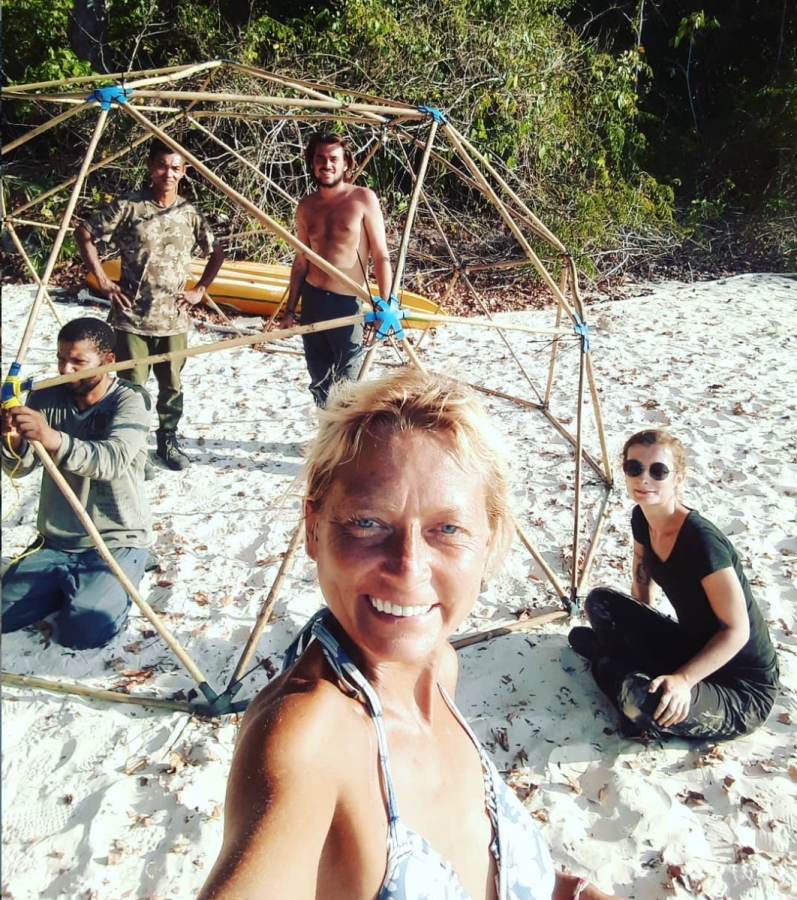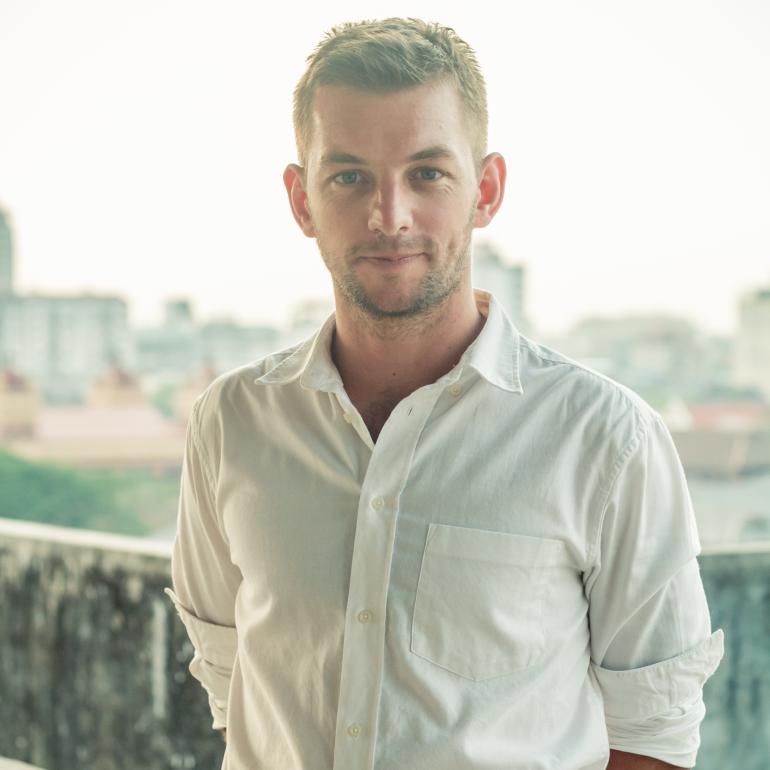
It’s another day of lockdown on an almost deserted island in southern Myanmar. On the menu is foraged yam—fuel for clearing jungle trails—and on the minds of the intentional castaways is the coming monsoon, expressed in cracks of distant thunder.
Choosing to stay on one of the 800 lush enclaves that dot the Myeik Archipelago was a no-brainer for the five conservation volunteers. Despite dwindling food stocks, they were not entirely alone—staff remained on Kyun Pila’s only resort, Awei Pila, where they can access drinking water, showers, and shared portacabin accommodation.
Sporadic boats bring staples such as rice and pasta, while the resort grows vegetables and employs a nurse in case of emergencies. Plus, for the volunteers, restoring coral reef in a tropical environment easily trumped quarantine between four walls.
But the two women and three men—from England, Hungary, Canada, Malaysia, and France—did not expect the coronavirus pandemic to shut down the world for this long.
Living on the island from two weeks to two months longer than planned, they have built a jungle camp mostly made of washed-up plastic to house future volunteers and researchers, each with their own dome-like hut made from bamboo, rice sacks, and bottles.

The rain has begun, a prelude to strong gales coupled with powerful swells forecast from mid-May that would mirror fraying tempers and high tension, as anxiety grows over their uncertain predicament.
They had planned to board an evacuation boat for the remaining staff on May 5 and enter nearby Thailand, however the boat was cancelled and Thailand this week added another month to its ban on entry to foreign nationals.
The conservationists, who volunteer with environmental group Ocean Quest Global, have pinned their hopes on the next boat, which will likely arrive mid-May, said Devon-born scuba diving instructor Natalie Poole, 35.
“The experience now feels much more than a volunteer project to all of us, it feels more like survival,” said Poole in an email, using a Wi-Fi hotspot outside an office at the resort.
Though she worries for her 78-year-old father, Poole said her family encouraged her to continue her passion project on the island.
“The hardest thing for me has been dealing with the unknown and being so far from family, unable to return to them if I needed to,” she added.
Myanmar has suspended commercial flights until May 15 and local authorities might insist on a 28-day quarantine on the mainland. So far the health ministry has recorded 151 Covid-19 cases and six deaths, but experts fear the real figures are many times higher because of limited testing.
Poole arrived with Ocean Quest Global founder Anuar Abdullah on the island on March 19 and had planned to leave on April 15, whereas another volunteer arrived in early January and the other two in February. All their visas have expired.
“Usually in a programme like this there is a regular change of volunteers, which keeps things fresh and interesting, but the other three volunteers have been with each other a long time now and relationships are strained at times,” said Poole.
“Communal living is always a challenge because you get so little personal space and have to compromise a great deal. One person’s negative attitude or bad mood will affect everyone.”
On the island, Hungarian entrepreneur Orsi Vincze, 41, learned to drive a dingy, properly cut bamboo, and make new jungle trails, but she said her biggest revelation has come from within herself.
“I learned that no matter how Zen and chilled I had thought I was, in moments of solitude and difficult moments of physical and mental tiredness, I still lose control and stop being mindful and calm,” she said.
“That no matter how friendly and cheerful I usually am, when I am locked down on a relatively small island with strangers, I become moody, grumpy and little motivated.”
She described the experience as an unforgettable milestone “full of twists and turns” that held “magical moments” as well as the “hardest times” of her life.

Almost exhausting provisions “a few times” has jolted the group into frugality, said Poole, adding that each teabag is re-used three times.
The volunteers are mindful to eat modestly, as “once things are gone, they are gone until the next delivery,” said Poole, but “we love being able to supplement our food by foraging.”
In the jungle camp, about a 15-minute dingy ride away from the resort, they have begun planting vegetables, built a cooking area, and dug a well for washing.
At the resort, guests would usually relax poolside in luxury yurts. Now the local fauna is a more common sight: mouse-deer, wild boar, otters, scorpions, snakes, monitor lizards, and slow lorises, a small nocturnal primate with big shiny eyes.
Abdullah said the wildlife and marine life is “thriving again.”
“Without human interventions, nature has definitely bounced back with abundance,” he said.

His group covers transport and visa costs as well as food and lodgings for volunteers. It also provides some tools, including two machetes, two axes, two rakes, knives, scissors, and a hammer.
Poole has made her own contributions, combing the beach to recycle waste into useful items, such as washed-up containers for digging—efforts that have earned her the nickname “Trash Squirrel.”
Canadian coral propagation trainer Jungle Tshongo, 46, removes abandoned plastic fishing nets from the coral and repairs scuba diving gear among other duties.
“It’s hard work but the end result is greater than the pain,” he said.
Mangroves are important for reducing wind and waves, so the volunteers have cleared them of plastic and wood debris to prepare the island for storms.
But the evacuation boat should meet them before the bad weather, said Poole.
Lockdown on an island does have a major downside: “no bar”, she joked, though spending her days “outside with nature is an honour and a privilege.”
“We are essentially in quarantine here, but with no cost and a positive purpose,” she added. “It makes sense to stay.”


